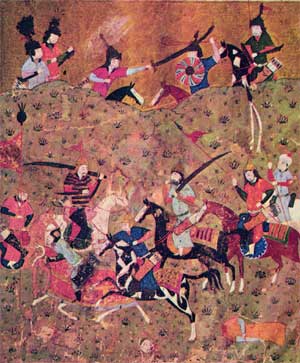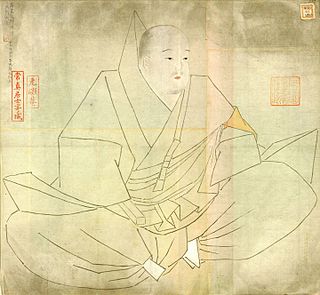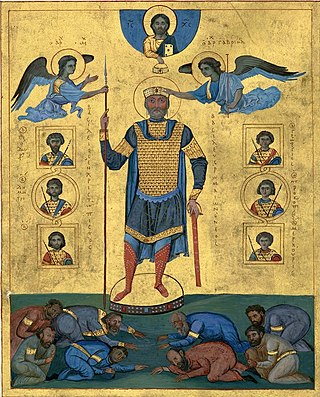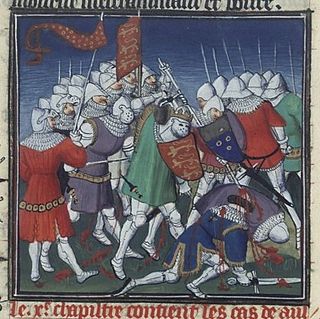
Year 1040 (MXL) was a leap year starting on Tuesday of the Julian calendar.

The 12th century is the period from 1101 to 1200 in accordance with the Julian calendar. In the history of European culture, this period is considered part of the High Middle Ages and overlaps with what is often called the "'Golden Age' of the Cistercians". The Golden Age of Islam experienced significant development, particularly in Islamic Spain.
The 1040s was a decade of the Julian Calendar which began on January 1, 1040, and ended on December 31, 1049.

Year 1135 (MCXXXV) was a common year starting on Tuesday of the Julian calendar.
The 1060s was a decade of the Julian Calendar which began on January 1, 1060, and ended on December 31, 1069.
The 1100s was a decade of the Julian Calendar which began on January 1, 1100, and ended on December 31, 1109.
The 1120s was a decade of the Julian Calendar which began on January 1, 1120, and ended on December 31, 1129.
The 1130s was a decade of the Julian Calendar which began on January 1, 1130, and ended on December 31, 1139.
The 1110s was a decade of the Julian Calendar which began on January 1, 1110, and ended on December 31, 1119.

Year 1129 (MCXXIX) was a common year starting on Tuesday of the Julian calendar.

Year 1025 (MXXV) was a common year starting on Friday of the Julian calendar.

Year 1053 (MLIII) was a common year starting on Friday of the Julian calendar.

Year 1161 (MCLXI) was a common year starting on Sunday of the Julian calendar.

Year 1137 (MCXXXVII) was a common year starting on Friday of the Julian calendar.

Year 1091 (MXCI) was a common year starting on Wednesday of the Julian calendar.

Year 1106 (MCVI) was a common year starting on Monday the Julian calendar.

Roger II or Roger the Great was King of Sicily and Africa, son of Roger I of Sicily and successor to his brother Simon. He began his rule as Count of Sicily in 1105, became Duke of Apulia and Calabria in 1127, then King of Sicily in 1130 and King of Africa in 1148.
Ranulf II was the count of Alife and Caiazzo, and duke of Apulia. He was a member of the Italo-Norman Drengot family which dominated the Principality of Capua for most of the century between 1050 and 1150. Ranulf's wife, Matilda, was the sister of King Roger II of Sicily.
The 1020s was a decade of the Julian Calendar which began on January 1, 1020, and ended on December 31, 1029.

The County of Apulia and Calabria, later the Duchy of Apulia and Calabria, was a Norman state founded by William of Hauteville in 1043, composed of the territories of Gargano, Capitanata, Apulia, Vulture, and most of Campania. It became a duchy when Robert Guiscard was raised to the rank of duke by Pope Nicholas II in 1059.












